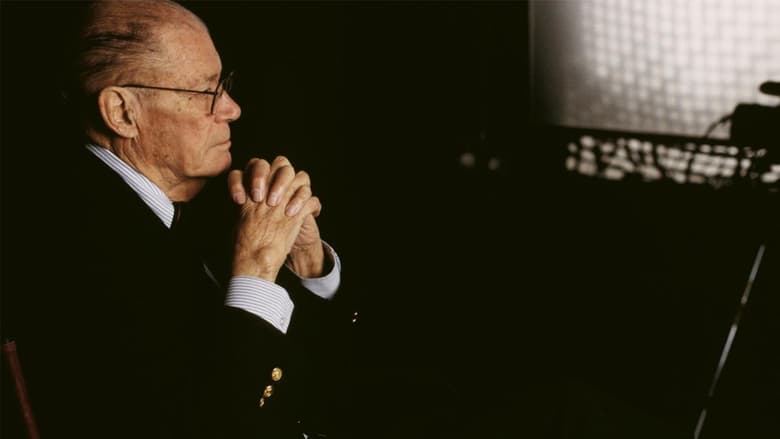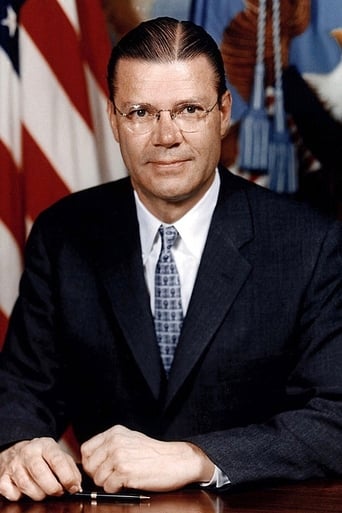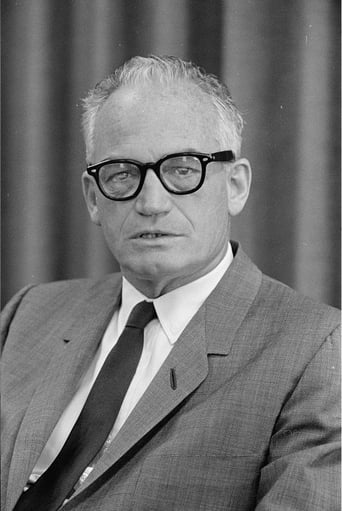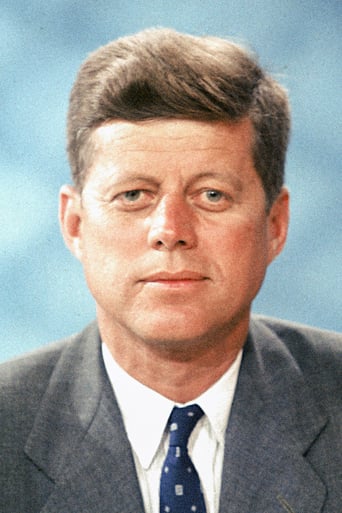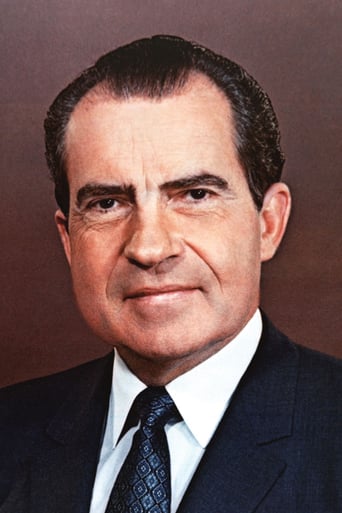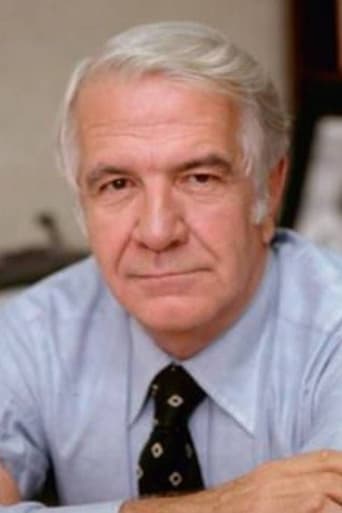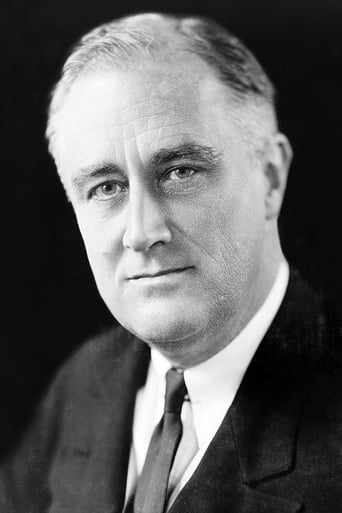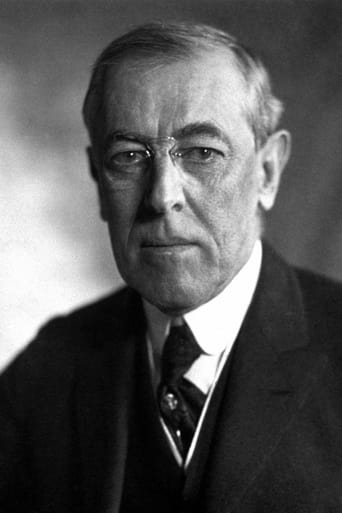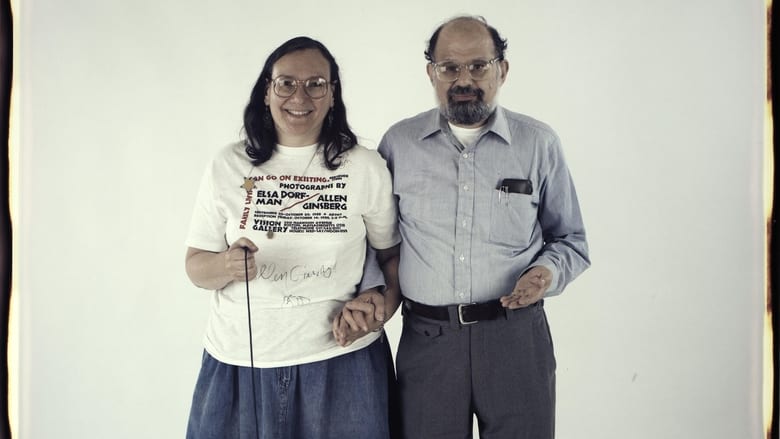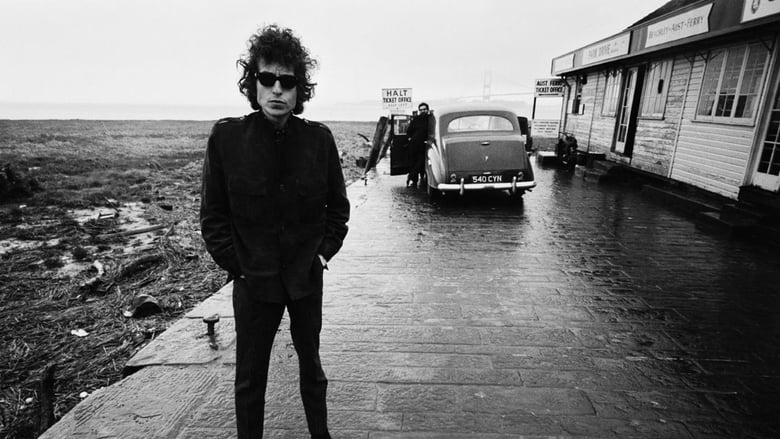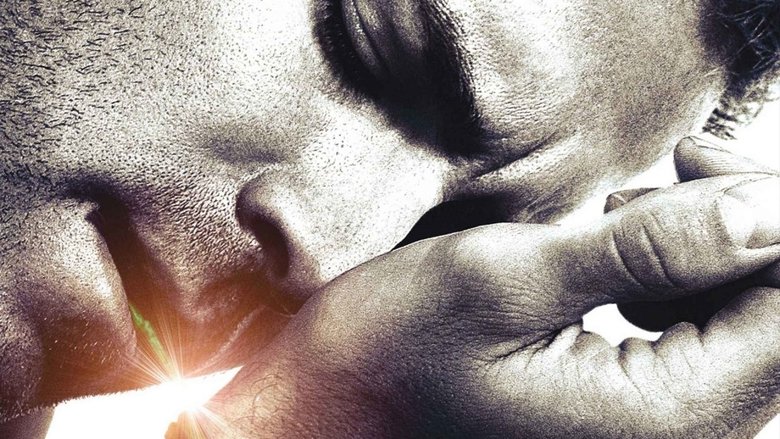Using archival footage, cabinet conversation recordings, and an interview of the 85-year-old Robert McNamara, The Fog of War depicts his life, from working as a WWII whiz-kid military officer, to being the Ford Motor Company's president, to managing the Vietnam War as defense secretary for presidents Kennedy and Johnson.


Similar titles
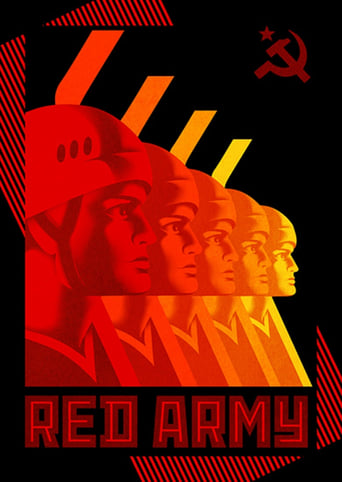

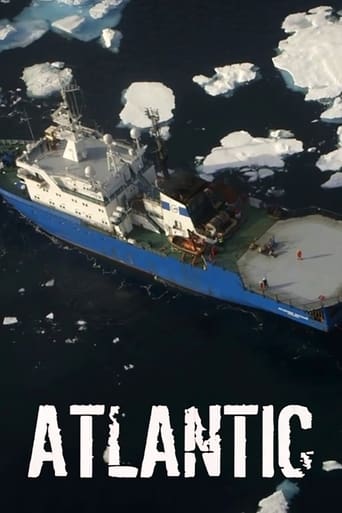
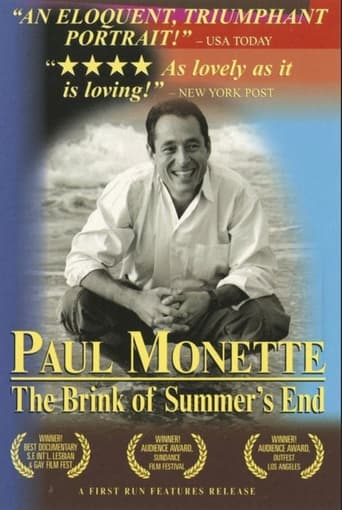

Reviews
Few figures of recent American history will be as controversial as Robert McNamara. Secretary Of Defense under both President Kennedy and President Johnson from 1961-1968, he played key roles both during the Cuban Missile Crisis of 1962 and in the lead up to and conduct of the Vietnam War during that period. McNamara, who died in 2009, was the subject of Errol Morris' 2003 documentary The Fog Of War which itself recently had its own tenth anniversary.Partly that's because of its subject matter. Largely because of the controversy around him and his long silence about his role in the Vietnam War, McNamara himself is a fascinating figure. Outside of his 1995 book In Retrospect, this may very well be the most candid McNamara ever was about his life and in particular about his time as Secretary Of Defense. Thanks to Morris' interrotron technique, McNamara often seems to be looking right into the eyes of the viewer and the vice versa is true as well. The result is that this portrait of him is given even more power, especially when he talks about helping pick out the site where JFK is buried where you can see his eyes watering or his eyes light up in the rare moments of humor. McNamara also proves he can own up (as it were) to some of the more questionable events he took part in and even downright mistakes such as the firebombing of Japanese cities in World War II and the fundamental misunderstandings that led to increasing involvement in Vietnam. Yet, for every moment like that though, there are moments where one can't quite read him, especially when he becomes increasingly guarded about Vietnam and why he didn't speak out more against it after he left government. The results are often just as haunting as they are fascinating.McNamara himself though is just part of the documentary. Morris makes extensive use of archival material with some of the most outstanding being rarely heard recording of meetings and phone calls involving McNamara and the two President's he served under, especially in comparing the conflicting attitudes to the war in Vietnam expressed first by Kennedy in late 1963 and then Johnson just months after Kennedy's assassination. There is also a wealth of rarely seen documents as well, especially from McNamara's statistical work during World War II that leads to a haunting piece of animation of his handwritten numbers becoming the bombs dropped on Japanese cities. There is also a limited amount of reenactments as well, especially to illustrate the surreal but true way that skulls were dropped down a Cornell University stairwell in tests that led Ford to install seat-belts in their vehicles. Then there's the score of Phillip Glass which gives the entire proceeding a most haunting quality it might not have had otherwise. As a result, the more artistic elements of the documentary compliment the portrait of McNamara rather nicely.The heart of the film though is in its narrative structure, which is centered around eleven lessons Morris draws from McNamara's life. It is these lessons that make the film as timely as ever in a world that continues to be in a state of continuous conflict. McNamara's life and the events he relates are merely examples from how the Cuban Missile Crisis shows us that rationale people can be lead to the edge of irrational decisions (starting a nuclear war) to how the Gulf Of Tonkin incident is a prime example of how seemingly incontrovertible evidence can be wrong and lead to unimagined consequences. While these examples might be taken from decades and crisis' of the past, are every bit as applicable today as they were both in McNamara's time and when this was first released a decade ago.Despite being about events a half century or so ago, and being a decade ago itself, it remains a film as relevant today as it ever has been. On one hand, it presents a compelling portrait of McNamara and his role in some of the most important and controversial events of the last fifty years. On the other, it blends that portrait skillfully with artistic elements that make the lessons taken from that portrait all the more compelling. The results are haunting, fascinating and well worth viewing.
The Fog of War is a great documentary because it has an intelligent subject and a wise filmmaker, who fearlessly tackles subjects that come stockpiled with burning questions. Director Errol Morris knows how to gear a discussion where he wants it to go, and utilizes the "Interrotron," which Wikipedia states is Morris' device where, "the image of each person's face is then projected onto a two-way mirror positioned in front of the lens of the other's camera. Instead of looking at a blank lens, then, both Morris and his subject are looking directly at a human face." In return, we get lively, crystal-clear picture quality and the subject often locks eyes with the audience members, showing a very personal relationship for the material at hand.The subject of the film is Robert McNamara, the Secretary of Defense during the Kennedy administration and such events as the Bay of Pigs, the Tokyo bombing, and the Vietnam War. Basically, you can say McNamara was in charge of Defense during some of America's most trying, nerve-wracking times. Uncertainty plagued all officials, frustration loomed from world leaders, issues like Vietnam and civil rights left American citizens more divided than ever, and America seemed to be steered towards the calamity of nuclear war.McNamara and Kennedy were on the frontlines of political danger. McNamara recalls long, sometimes sleepless nights due to stress and indecisiveness on how to approach the war. He even states how meeting with world leaders was a strange process. At one point, it was said that Fidel Castro accepted the fact that the population of his country may plummet because of this war. It was as if he accepted that Cuba could be destroyed over this war. It is when McNamara discusses the bombing in Tokyo that killed thousands that it would be justifiable to try him and numerous other officials as war criminals.Having McNamara discuss the interworkings of his job and the stress and backlash every decision he made came with offers an emotional core to the film. I have a feeling the emotional relevance of documentaries is an unnoticed addition, but when it comes to down it, what you're hearing is a man who was criticized heavily during his days in office and now finally has the courage to speak for an extensive amount of time, in front of a camera, about his experiences as the Secretary of Defense. McNamara often tears up during the film, and this only adds to the idea he wants us to take away, which is the men behind these serious operations are indeed human.Furthermore, McNamara is an electric screen presence to say the least. In the film, he teaches us "lessons," eleven to be exact. They are short, concise sentences that help us understand the circumstances of war and the thought-process that guided him through the dark days of his time in office. Occasionally swayed on-topic by Morris, or directed by a strong question, McNamara speaks with the voice of a leader, rarely pauses, and always seems to have a response loaded up and ready to go. Late in the film, he states he answers every question he is asked with the answer to the question he wish was asked. Perhaps this justifies his quick-wit and immediate responses to every question.The strongest metaphor in the film involves a large array of dominoes scattered across a flat map. In slow-motion, Morris shows the collapsing dominoes with a beautiful blur-effect and thunderous sound. At the end, we see a slow-motion shot of the dominoes aligning back upwards to only be knocked down again sometime in the near future.The concluding points of The Fog of War are as followed: one is that politicians and political officials are human and aren't even totally sure of the moves they make. The second is that the idea of "the fog of war" is a real thing. It's the figurative mental cloud during a treacherous time that fogs your judgment and makes decision-making a hairy, difficult process. By the end of the film, McNamara clearly wants to finish talking. We can hear Morris ask trying questions such as the value and the gain of the Vietnam War on America's part and his personal opinion. McNamara ends the show by informing that he fears backlash if he were to answer these questions from either standpoint.Starring: Robert McNamara. Directed by: Errol Morris.
After spending an hour or so with an old man, a product of a important American university, a corporate player and a major decision maker in government policy, a man probably responsible for thousands of human deaths, one wonders why more of us have not been incinerated by bombs set loose by well-meaning madmen who are able to intellectualize and justify mass carnage with few second thoughts.This is an admirable slice of film-making, and while recognizing it's importance as a document, the ideas emanating from the human centerpiece didn't exactly thrill me; mass annihilation is not a particularly salubrious topic. This is a creepy, unsettling film about a man who learns quickly but whose messianic zeal is frightening. The film questions humanity's ability to learn from past mistakes and is seldom optimistic about it.
McNamara's movie is an enjoyable one, but it's just an opinion of him and there's hardly any analysis of him or other people's opinion of his statement from other experts in the field. It's the same thing as Al Gore's Inconvenient Truth. When one person monopolizes the party, his opinion may monopolize you. So this review is only a background information before watching the movie not to get lost into the propaganda of things. Public Relations is actually the same word as Propaganda. And the person who coined the word "Public Relations" - a cousin of Sigmund Freud, Edward Bernays actually mentioned this fact. Hollywood is not supposed to be historically accurate, nor does it really teach us much. It is filled with personalities, drama, action, comedy for the basic purposes of entertainment. I also love entertainment myself. But to confuse reality and semi fiction is dangerous. Remember the movie Blair Witch? People thought they were real people. They were actually actors. Can you tell if a politician is acting or telling the truth? Really. Or have you watched the old 1960s T.V. Show "To tell the truth". The life lessons of McNamara can't be summarized into 11 lessons. It's not even McNamara's lessons. It's Morris interpretation of McNamara. In fact McNamara in the DVD documentary has other lists too, and whether that is what McNamara learned is really anyone's guesses. Also if McNamara were actually agree to do a documentary, the directors BETTER make the look better and improved their image, otherwise there's no incentive to do it in the first place. Few actor in their right mind, would do a movie (.e.g Bruce Willis or Harrison Ford) do a movie for free when his personality and popularity is at his peak. One of the lessons, seems more like lessons of what the public perceives to be true for today (it's much easier to play along public sympathies). Such as war can't be averted, that might be true. But wars are engineered by governments so they can go into war. Pretext of war is a deception of the public opinion that they are indeed our enemy, when the enemy is us. History is filled with U.S. firing on it's own ship and blaming the enemies as a pretext to war. Remember the Lusitania, and the unsuccessful one President Johnson to get Israel to fire on a U.S. ship as a pretext to war with Egypt, unluckily the Russian jet knew and the whole war there had to be discontinued. The reason why war was stopped is not the benevolent government, it came from the Russians. KGB files revealed that the Russian's financed the Peace Protest in the U.S. which lead to Kent State University killing, that finally lead to a withdrawal of Vietnam War. A more accurate history account can't be told from one man's perspective. He can have a monopoly over you. Take for instance, Al Gore's Inconvenient Truth. People now know that it's the Sun, not CO2. In fact it's not even global warming, it's the entire solar system of all our planets that is warming as our solar system reaches an unstable equatorial region of the Milky way with black hole radiation emanating from it. General Idi Dada Amin (A Self Portrait) is interviews by himself, and he seems like a cute and funny guy, but then aren't leaders suppose to be good public relations? He's perhaps one of the most evil men in history. Robert McNamara some think (I don't think so)he's a smart and a man of wisdom. But that's self promotion. While Kennedy was the only one who opposed the war (he was killed for that and other things such as vote cheating by LBJ, firing of Allen Dulles - a powerful Rockfeller backed person), why is it news media avoided that and twisted the fact as if Kennedy was pushing for Vietnam war? A good history lesson I recommend, Professor Carroll Quigley, "Tragedy and Hope", which tells of a powerful economic and consolidation of power behind all the wars. If you are a fan of Carroll (Bill Clinton was one) then our civilization's downfall is near that if you follow his books written in early 60s or late 50s - The Evolution of Civilization. The whole issue of war and why we go into war is a clear one. It is no mistake of the administration. And some people are beginning to believe WTC is an inside job and an controlled demolition (especially thermite bombs and building number 7) as a pretext for the Iraq war. After the U.S. took over Kuwait on the war against Saddam, most of Kuwaiti oil now belongs to the U.S, and the sheiks who owned it was actually never returned. Therefore things is not what it seemed and you just have to dig deeper. You get different realities all together - the blue pill or the red pill. I don't know which, because the media made us color blind.

